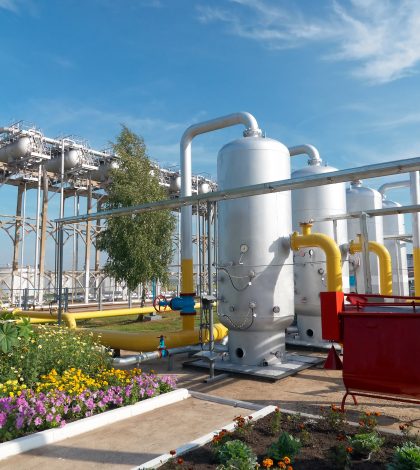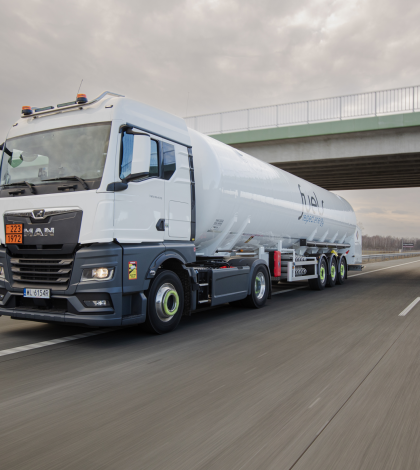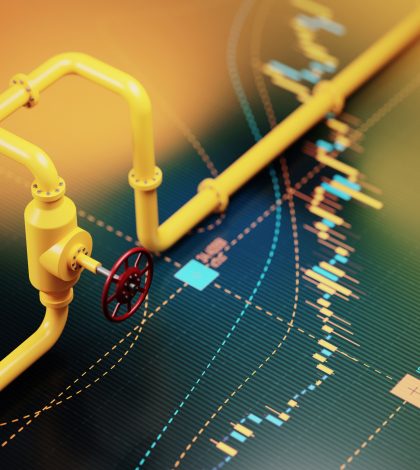How to estimate the benefits of using natural gas

Are you considering switching to natural gas or LNG as part of your company’s operations? Before making a decision, it is worth carefully assessing the potential benefits of this type of fuel. Specialist consultancy companies such as Respect Energy Fuels can assist with this process. Before you contact a consultant, it is worth obtaining some information that will enable more specific conversations. Here are 10 key things to consider:
Alternative to Traditional Fuels: Natural gas and LNG are popular alternatives to conventional fuels such as hard coal, fuel oil or LPG.
Multi-Industry Application: These fuels are used not only in industry but also in other sectors due to their economic and ecological benefits.
Individual Needs Assessment: To accurately assess benefits, your business needs must be carefully assessed.
Economic and Ecological Advantages: It is worth identifying what economic and ecological benefits may result from the use of natural gas or LNG in your company.
Analysis of Current Practices: Collecting information about the company’s current practices is crucial.
Specialist Expertise: Combining knowledge of company practices with the expertise of natural gas specialists is essential.
6-Step Transition Process: The natural gas transition process involves 6 steps, starting with initial consultations and ending with more extensive analyses.
Information Needed: The more information we have about your needs, the more effective we will be in assessing the feasibility of using natural gas in your company.
Data Retrieval Support: If you’re having trouble getting the information you need, specialists can help you get it.
Assessment of the Profitability of Switching to LNG: In the case of LNG, a detailed analysis of the current situation and the technical needs of the company is crucial.

Characteristics of receivers and consumption
Our experts will first ask about the type, type, number and power of thermal energy receivers installed in your company. In the next stage, we will ask you to provide photos of the nameplates of the installed devices or we will conduct a site inspection to obtain this information. Additionally, we will ask questions about the annual volume of consumption of produced hot water or process steam, taking into account the values recorded at peak consumption times and the daily characteristics of heat demand.
If you are also considering gas cogeneration, we will ask you some additional questions about the characteristics of your electricity demand. This in-depth inquiry will help us thoroughly understand the specifics of your business and tailor natural gas or LNG solution proposals to your specific needs. If some data is unavailable, we will be happy to help you obtain it during an on-site visit to ensure comprehensive analysis and optimal adaptation of the proposed solutions to your business.
Characteristics of previously used fuels
During our consultations, we will ask what part of the energy produced will be used for social purposes and what part will be used in production processes. Understanding the division into these two categories will allow us to tailor our energy proposals and solutions to the specific needs of your company, taking into account existing social goals and production requirements.
Purpose of gas consumption
Podczas naszych konsultacji zapytamy o to, jaka część wytwarzanej energii będzie przeznaczona na cele socjalne oraz jaką część będzie wykorzystywana w procesach produkcyjnych. Zrozumienie podziału na te dwie kategorie pozwoli nam dostosować nasze propozycje i rozwiązania energetyczne do konkretnych potrzeb Twojego przedsiębiorstwa, uwzględniając istniejące cele społeczne oraz wymagania produkcji.
Current efficiency of the boiler room
Optimal boiler room efficiency is a key element in assessing energy demand. The higher the efficiency of the system, the less fuel needed to produce a unit of energy. The efficiency of the boiler room has a direct impact on the efficiency of the entire energy generation process, which translates into economy and sustainable use of energy resources.
The use of modern technologies, process monitoring, and regular maintenance of the boiler room are key elements of ensuring its efficiency. Improving energy efficiency not only increases the competitiveness of the company, but also fits into the global pursuit of sustainable development and minimizing the negative impact on the environment. Therefore, investing in the modernization and maintenance of boiler rooms at a high level of efficiency is not only economically justified, but also plays an important role in the context of social and ecological responsibility.
Associated costs
To prepare an offer tailored to your needs, it is crucial to thoroughly understand the costs associated with your current energy consumption. We pay particular attention to the level of costs related to the emission of harmful substances into the atmosphere. In the context of this issue, LNG as a fuel with lower emissions can significantly contribute to savings in this area.
When considering potential benefits, we focus not only on economic aspects, but also on a sustainable approach to the environment. LNG, as a more environmentally friendly fuel, can not only generate cost savings, but also have a positive impact on the reduction of harmful gas emissions. Our analysis therefore covers both economic and ecological aspects to provide a comprehensive offer tailored to your individual needs and company priorities.
Terrain characteristics
The construction of gas and LNG infrastructures is strictly regulated by applicable law. The area where such an infrastructure is planned must be properly secured by fencing and creating a safety zone. The size of this zone depends on the infrastructure parameters, such as annual efficiency and the level of gas consumption at peak times. It is worth noting that these parameters are closely related to the specificity of the planned investment.
In the initial consultation phase, it is important to conduct preliminary research regarding the availability of land at the site of the potential investment. These initial assumptions will then be verified by Gaselle specialists and the client’s representatives during an on-site visit. As part of this process, we will also ask about the facilities existing in the vicinity of the potential infrastructure, which will allow for a more accurate assessment of the impact of the planned investment on the existing infrastructure and surrounding space.
Bearing in mind the strict regulations governing the construction of gas infrastructures, our activities in this area are aimed at ensuring compliance with the law, as well as minimizing potential risks related to safety and impact on the environment.
Connections
We will also be interested in information about the availability of the type of power line in the area of the planned investment, as well as the voltage on these lines. As part of our consultations, we will ask about the distance of the power line from the area where the gas infrastructure is planned, as well as the distance from the hydrant or water supply.
Knowing these details is important in the context of the planned investment in order to optimize connections and minimize possible disruptions to existing infrastructure. If you have difficulty obtaining this information, we are happy to assist you and will make efforts to obtain it. Our goal is to provide a comprehensive analysis of local conditions, which will allow for the effective preparation of investment plans, taking into account all relevant environmental factors.
Documentation and permits
During this stage of consultation, we will also ask about the legal conditions and the documents that describe them. Our experts will carefully check the availability of an extract from the local development plan. In this context, we will ask whether there is any information available regarding restrictions or special conditions that have been set out as part of the development plan.
Additionally, we will focus on environmental protection issues, checking whether there are any restrictions resulting from environmental protection regulations in the area designated for the investment or adjacent to it, such as NATURA 2000 areas, protected areas, parks or reserves. Obtaining a full picture of legal and environmental conditions will allow us to precisely adapt investment plans to applicable regulations, thereby minimizing potential risks related to legal aspects and environmental protection. If necessary, we provide assistance in obtaining the necessary documents and interpretation of regulations.
We will ask about maps, situational sketches and photos of the planned investment site.
Preparation of the area
In the last stage, we will want to assess the extent to which the client can help with the preparatory work related to the preparation of the site.
Before you decide to switch to LNG, it is worth finding out what cooperation with a liquid natural gas supplier looks like in practice and what to pay attention to when choosing a partner.
What does the process of building an LNG infrastructure look like?
LNG supply requires appropriate infrastructure in the form of an on-site LNG regasification infrastructure. As with any energy infrastructure, safety and quality of workmanship, but also the investor’s time and convenience are key here. What does the process of building an LNG infrastructure look like, how does the construction work and how can the experience of experts help you?


